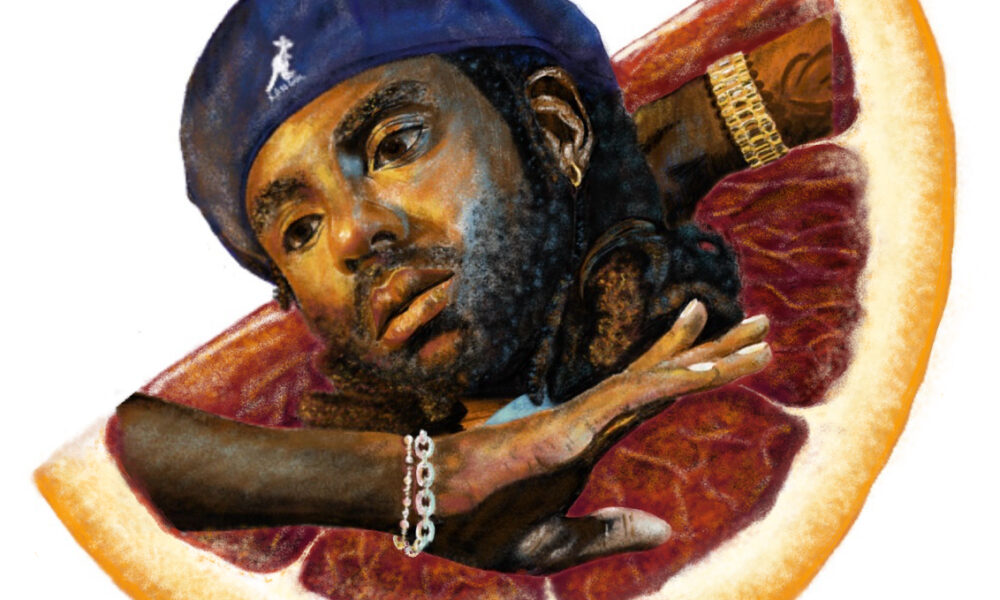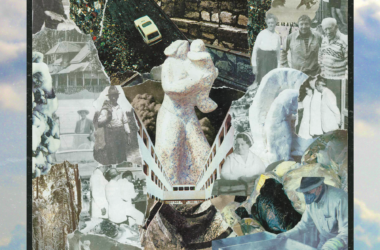Devonté Hynes, under the alias Blood Orange, entered the mainstream several years ago when his 2011 song, “Champagne Coast,” gained viral popularity on TikTok. After a six-year hiatus, he released a new album on Aug. 29, Essex Honey in which he contemplates grief, loss, and growing up. Within each song is a series of ellipses tying itself together, as though he is intertwining several different sounds—fragmented, yet harmonious. The songs are free from the imprisonment of iconic sound and catchiness, acting rather as a surrender to a sense of measured choppiness. The lyricism reads like poetry, balanced amongst sounds of conversation and bursts of instrumental ad libs. Exhibiting a symphony of reality, Essex Honey is a phenomenal album that travels through the journey of grief with grace.
“Look at You,” the first track of the album, is a touching song about grief that sets the tone for the songs that follow, representing Hynes’ fear of the inevitability of change and death. The ebbs and flows of the song represent the ebbs and flows of loss: The feeling of staring at your ceiling trying to sleep when all you can think about is the sound of their laugh or the crinkle of their eyes. The rest of the tracks don’t explicitly confront human death, but rather the death of the hometown, the death of childhood. Hynes’ uncertainty surrounding these losses is palpable beyond the words he sings. In each track lie multiple songs, with abrupt shifts from solemn collaborations of flute and piano to harsh, staccato cello notes. He conveys the anxiety that at any moment, your loved ones could die, your hometown could become unrecognizable, and without realizing it, you stop being a kid.
As someone who has experienced grief and loss, the album is incredibly touching. And as a musician, it is a commanding work of art. Hynes places each instrument, including the various features—namely Caroline Polachek and Tirzah—in conversation with one another. As he voices his lyrics, a flute chimes in with agreement. A bass line delivers some harsh news, and a crowd of seagulls offers condolences. In a way that feels incredibly tangible, the sounds are woven together in communication like a lively debate at the dinner table. Essex Honey is the kind of album that leaves a lingering desire to watch the music in action, to watch the instruments bounce off one another.
The concluding track, “I Can Go,” pulls the album together such that the listener themselves feels Hynes’ journey with grief. He does not leave the listener hanging: It is not open to interpretation. Following the thirteenth track, “I Listened (Every Night),”—a liberating love letter to music as therapy—“I Can Go” settles into everyday grief. It is the light at the end of the tunnel, the acceptance that the only way forward is through. Hynes sings, “Now, what you know / Is nothing I can hold / I can go.” Whereas earlier in the album, he is clearly distraught, hanging on to what no longer exists, the final track is a surrender, an acceptance.
Rejecting the instant but fleeting gratification of TikTok virality, Hynes has created a beautiful and encapsulating album, free from overused and stereotypical fifteen-second sound bites that have become all-too familiar amongst popular artists. Essex Honey is not clippable nor catchy—it is raw, a breath of fresh air. It is jazz, classical, and R&B. It is the experience of eavesdropping on the metro with one earbud in, studying in a cafe comforted by the clinking of silverware and overlapped conversations, walking on a busy street surrounded by your own contemplative thoughts of love and loss. A gleaner of everyday noise, Hynes has yet again proved himself to be a master of the medium, finding freedom and solace in the vicissitudes of life.









